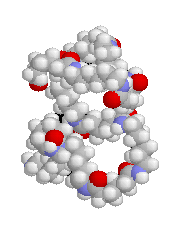High-Performance Polymers: Advanced Products for Market
High-Performance Polymers: Advanced Products for Market
Blog Article
Checking Out the Varied Applications and Advantages of Polymers in Different Industries
Polymers, with their varied array of homes and capabilities, have actually become crucial in numerous markets, each enjoying one-of-a-kind take advantage of their application. Polymers. From boosting safety and security and performance in the automobile sector to transforming medical tools in the medical care industry, polymers play a crucial duty. Furthermore, their eco-friendly nature is altering the landscape of sustainability practices. As we dive into the depths of polymers in electronic devices, we reveal innovative innovations, while their structural integrity transforms the realm of building and framework. The pervasive impact of polymers throughout industries is a testament to their convenience and adaptability, shaping the future of numerous industries.
Automotive Industry Applications
Polymers play a crucial duty in enhancing the performance and longevity of numerous elements within the automobile market. These versatile materials are thoroughly used in the production of different parts, ranging from interior components to under-the-hood applications. One famous use polymers in the auto sector is in the manufacturing of lightweight elements. By changing traditional metal components with polymer-based alternatives, cars can attain improved fuel efficiency without compromising on stamina or safety and security.

Medical Care Industry Benefits
In various health care applications, the advantages of using polymers are widely recognized for their varied variety of advantageous residential properties. Polymers play a vital role in the medical care sector because of their convenience, biocompatibility, and cost-effectiveness. Among the main advantages of polymers in healthcare is their ability to be customized to details needs, such as flexibility, resilience, and biodegradability, making them optimal for a broad array of medical applications.
Polymer-based products are thoroughly utilized in clinical tools, such as catheters, implants, prosthetics, and medicine distribution systems, due to their biocompatibility and capability to simulate natural cells. These materials can lower the threat of allergies or denials, improving patient safety and outcomes. Furthermore, polymers are light-weight, making them appropriate for wearable medical tools and making certain individual comfort.
Additionally, polymers allow the development of ingenious treatment approaches, such as hydrogels for tissue design and nanocomposites for targeted medicine distribution. Their convenience of processing and sterilization makes them crucial for preserving high standards of health in medical care settings. In general, the varied advantages of polymers contribute dramatically to innovations in clinical modern technology and client treatment.
Environmental Benefits of Polymers

In addition, polymers can add to energy cost savings due to their light-weight nature. In markets such as transport, lightweight polymer materials can assist decrease fuel usage and greenhouse gas exhausts. Furthermore, polymers can enable the growth of energy-efficient items such as insulation materials that boost energy preservation in buildings.
In addition, polymers play a critical duty in minimizing water pollution. For instance, making use of polymer-based filtering systems can effectively get rid of pollutants and impurities from wastewater, protecting water sources and environments. In general, the environmental benefits of polymers make them valuable properties in advertising sustainability and environment-friendly practices throughout you can try these out different industries.
Polymers in Electronics and Innovation
Taking into consideration the boosting need for cutting-edge and sustainable solutions in modern-day markets, the assimilation of innovative polymer innovations in the world of electronics and technology has actually become a crucial technique for driving efficiency and performance. Polymers have changed the electronics sector by allowing the production of lighter, more adaptable, and long lasting digital tools. From smartphones to clinical gadgets, polymers play a vital function in improving item design and functionality.
One substantial benefit over at this website of polymers in electronics is their insulating residential properties, which assist safeguard delicate electronic elements from environmental variables and electrical interference. Additionally, polymers are essential in the growth of flexible screens, wearable innovation, and published electronic devices, offering countless opportunities for developing clever and interconnected gadgets.
Furthermore, using polymers in electronic product packaging has resulted in developments in miniaturization and thermal management, enhancing the general performance and integrity of electronic systems. As modern technology remains to progress, the adaptability and versatility of polymers will certainly drive additionally development in the electronic devices sector, forming the future of innovation.
Duty of Polymers in Construction and Infrastructure
Polymers supply various advantages in the building industry due to their flexibility, toughness, and cost-effectiveness. One vital duty of polymers in building is their use in layers and sealers, providing protection against environmental elements such as moisture, UV radiation, and rust.
In addition, polymers play a critical function in lasting building and construction methods by enabling the development of energy-efficient structures. Insulating products made from polymers help manage interior temperature levels, reducing the requirement for home heating and cooling down systems and eventually lowering power consumption. Moreover, using polymer-based compounds in infrastructure projects such as bridges and roadways enhances their longevity and reduces maintenance expenses. In general, the unification try this site of polymers in construction and facilities displays their significant effect on modern-day engineering methods.
Final Thought
To conclude, polymers play an essential function in different industries such as automotive, healthcare, environmental, electronics, and construction. Their versatile buildings make them useful in producing cutting-edge options and items. From improving gas efficiency in vehicles to improving medical tools, polymers use numerous benefits. Furthermore, their effect on lowering waste and promoting sustainability highlights their value in contemporary applications. The prevalent use polymers demonstrates their considerable contribution to advancing modern technology and improving high quality of life.
Report this page